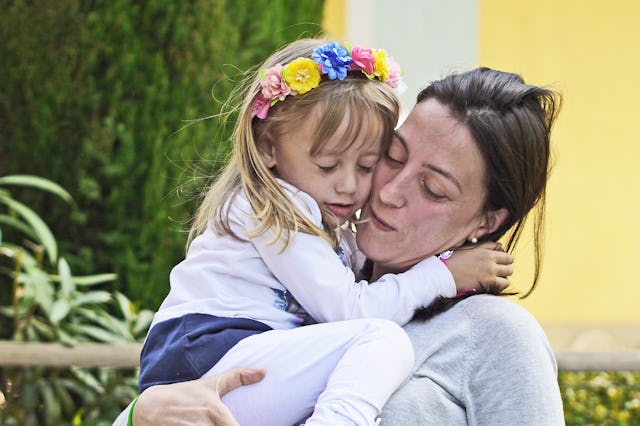Study Shows Anti-Vaxx Influencers Target Three Types Of Moms
A new study has found that anti-vaccination misinformation is more coordinated and sinister than you might think.

When the pandemic hit, it didn’t feel like long before misinformation about the virus — and then misinformation about the vaccines — ran wild on the Internet. And a shocking number of mothers took the bait.
Two researchers, Michael Walsh, PhD, and Stephanie Baker, PhD, wanted to find out where the misinformation was coming from, as well as why so many millions of people fell into line believing it.
What they found was nothing less than sinister: the majority of prominent anti-vaxxer “influencers” were very strategic about targeting mothers with their schemes, and they targeted their audiences by taking advantage of a mom’s love for her kid.
The pair — with Dr. Walsh located at the University of Canberra and Dr. Baker at the University of London — monitored the social media activity of the “Disinformation Dozen” — the 12 most active anti-vaxx influencers — from January 2020 to the end of July 2021.
What they found was that these big players — who include Robert F. Kennedy Jr. — had a lot in common: these groups are highly organized, they operate much like large brands, and they preyed on a mother’s instinct to protect their children in order to win them over to their ways of thinking.
“Similar to regular influencers, the Disinformation Dozen are global brands,” Baker told Scary Mommy. “They not only present themselves as a product, but are highly targeted in their messaging.
Specifically, they targeted three types of moms: protective mothers, intuitive mothers, and doting mothers.
“The protective mother ensures their child’s safety, protecting them from harm. This theme is commonly manifest in terms of diet and lifestyle choices, a so-called ‘natural’ mother protecting her child from toxins and unnatural chemicals in the form of food and vaccines,” the researchers wrote in their report.
“The intuitive mother concept sets up a false conflict, pitting maternal instinct against professional medical and health knowledge – and couching intuition and anecdote as superior to research,” they continue.
“And finally, the doting mother, completely devoted to her children — this one was most often connected to influencers who were mothers themselves, and presented as posts that celebrated a brand of glamorous domesticity,” they finished.
“These are posts presented as children saying ‘please don’t give me vaccines’, ‘please don’t do this to me’, or as other mothers expressing regret that they did get their children vaccinated,” Michael says. “They’re quite emotionally wrought, fraught and exceedingly manipulative.”
One way they targeted these moms was by using hashtags normally associated with keeping kids safe or parenting naturally, like #SaveOurChildren #MotherKnowsBest and #TrustYourGut.
But while the anti-vaxx influencers spent their time “depicting anti-vaccination as a feminine ideal to which mothers ought to aspire,” the researchers found that the majority of those spreading false information weren’t even moms at all.
“We identified how anti-vaccine influencers speak to notions of motherhood — and found that fascinatingly, many of the anti-vaccine influencers driving that messaging are actually men,” Michael says.
How can moms protect themselves from being sucked into these conspiracies and tricked by false info? Baker says the best thing to do is remember that social media influences are ultimately selling something — and trying to take advantage of you in one way or another.
“It is sensible for all consumers to approach influencers on social media as brands given that ultimately they are advertising a product, service or idea,” she explains to Scary Mommy. “One of the objectives of this research project was to help mothers understand the tactics and techniques influencers are using to encourage vaccine hesitancy and refusal.”
Baker also warned that while many anti-vaxxers have moved to less mainstream platforms, they still lurk everywhere.
“Those members of the Disinformation Dozen who have been de-platformed typically move to less regulated platforms like Telegram and use their personal newsletters to market ideas and products to their followers,” she says. “Disinformation still frequently occurs on mainstream platforms, however. Most of these influencers maintain a presence on mainstream platforms and increasingly use savvy tactics and techniques to avoid detection from content moderators.”
Ultimately, the study offers a lot to think about, like how moms interact with social media influencers and how parents can be extremely vulnerable, especially when influencers are catering to our ideal visions of motherhood.